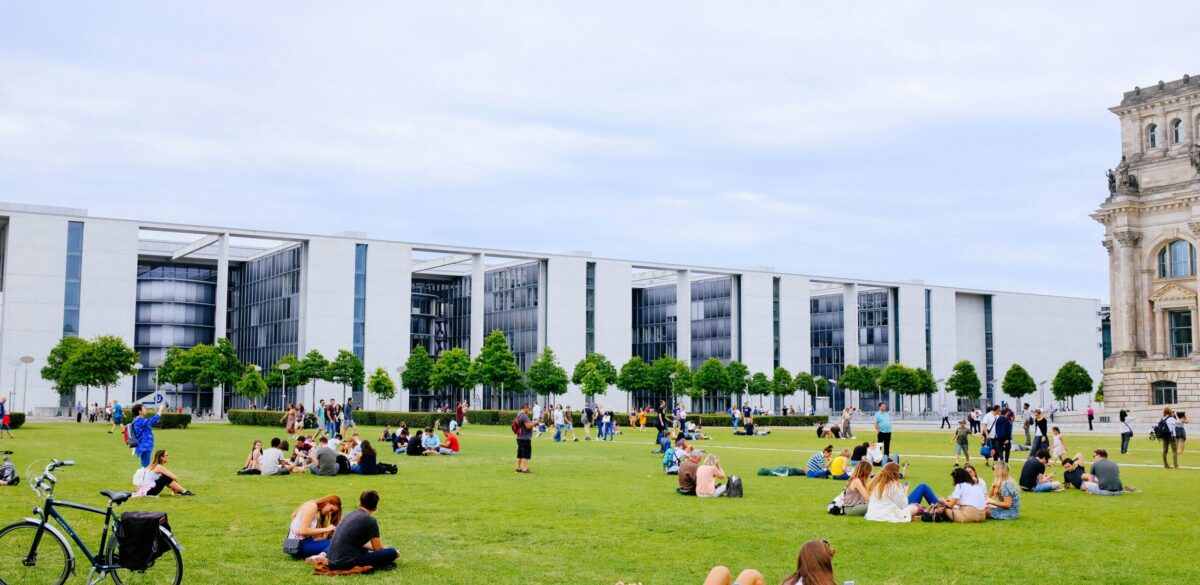As your university’s alumni go about their days leading teams, conducting research, and making an impact on the world, they may forget about the invitation they got to your next fundraising event. The email might sit in their inbox for weeks before they open it, only to realize then that the event already passed.
A text message, however, will cut right through the noise and get your alumni’s attention moments after you send it.
Your alumni want to give back to the university that gave so much to them, but they’re busy people. Meet them where they are by incorporating texts into your event fundraising strategy. In this quick guide, we’ll cover several ways you can use SMS for alumni fundraising events, explore tips for writing impactful higher education text messages, and even provide some examples that you can copy and paste. Let’s get started!
Why use texts for event fundraising?
Let’s face it—your event guests are already on their phones. Text messages help you engage them exactly where they are, drawing their attention back to your fundraiser and increasing overall engagement.
According to Mogli’s SMS marketing guide, text messaging works for all different types of audiences because of this channel’s:
- 98% open rate. This metric is astounding compared to other communication channels (just compare it to email’s 35.63% average open rate). Almost all of your recipients will open the texts you send them, meaning you can easily share event reminders, fundraising appeals, and updates that you know will reach alumni.
- 19% click-through rate. Not only will the vast majority of recipients read your texts, but about one in five will click on the links you send. Whether that’s a registration link, survey, or donation request, high click-through rates mean more alumni engagement with your events.
- Easy, fast engagement opportunities. Reading every word in an email is a big ask for busy alumni. Text messages, on the other hand, are short and sweet, encouraging guests to read and respond to your requests immediately.
On top of all these benefits, text messages are extremely flexible. You can use texts for everything from fundraising appeals to feedback collection to thanking volunteers. These messages can be casual or formal, sent to one or many recipients, and even open the door for authentic one-to-one conversations.
Using texts to improve every stage of your fundraising event
To successfully add texts to your event fundraising strategy, think about the entire attendee journey. Alumni hear about your event, decide to attend, participate in your activities, then reflect on their experience—and you can engage them with texts at each of these pivotal moments. Let’s break down how.
Before: Text marketing
The marketing strategies you use leading up to your event will determine not only how many registrations you secure, but how many alumni come to the event ready and excited to donate.
While you shouldn’t rely on texts for your entire marketing strategy, using them to send quick reminders, event teasers, and updates will help you connect with alumni and boost excitement for the event. Incorporate texts into a holistic multichannel strategy to prepare alumni to give.
For instance, you might send a formal invite to alumni via email or direct mail, then follow up with a text that says “The date of our annual alumni fundraising gala is set! Check your inbox to learn more.” Or, you could send weekly texts leading up to your auction that provide sneak peeks of special items and links to your event landing page.
During: Guest engagement
Sending texts during the event itself can boost participation and fundraising results. Remind guests to give, point them to virtual engagement opportunities, celebrate milestones, or send event logistics to help them navigate your space.
Take a look at these example texts to see what your engagement strategy might look like:
- Darlene, you’re officially checked in! Click here to access the event schedule, map, and fundraiser details. And don’t forget to have fun 💃
- Hi Ana, we hope you enjoyed the first day of Alumni Weekend. Don’t forget about the events still to come. Can we count on your donation tomorrow?
- 📣 Last call for silent auction bids 📣 You only have ten minutes to get your final bids in—act fast to make sure you win the items you want!
- Thanks for joining virtually, Evan! As you watch the livestream, don’t forget to check out our live fundraising thermometer and leaderboard here. Have you donated yet?
For both in-person and virtual events, text messages like these can bring alumni’s attention back to your fundraiser and encourage them to stay actively engaged. Think about any moments of your event when guests might get distracted, such as towards the end of the auction portion, and draft messages to re-engage them.
After: Fundraising follow-up
Finally, send text messages after the event ends to thank and follow up with guests. Prompt follow-up helps you show appreciation for the alumni who attended and encourages them to give again in the future.
Use SMS to send follow-up messages like:
- Personalized thank-you messages for all guests and donors.
- Reminders that there’s still time to donate if they didn’t do so at the event.
- Post-event surveys for collecting feedback.
- Updates on the event’s total fundraising revenue and what it will go toward.
You can easily send these personalized messages at scale with the help of text automation. For instance, the best text marketing apps enable you to create strings of messages that automatically populate with donor information from your database, such as their names and donation amounts.
Tips for crafting alumni fundraising texts
When it comes to actually writing the event text messages themselves, there are a few best practices you should keep in mind:
- Personalize whenever possible. To make personalization easier, Double the Donation suggests segmenting your alumni based on shared characteristics like giving level or class year.
- Shoot for 160 characters or less. Keeping your messages short ensures that they don’t get split into multiple texts by some carriers and that alumni can understand what you’re asking them to do with just a glance.
- Ask questions to encourage responses. Ending your texts with a question invites alumni to respond directly, boosting their engagement.
- Give a clear next step. Explain what you would like alumni to do next (i.e., RSVP for your event, donate, or fill out a survey) and provide a link so they can take action easily.
Refer back to these tips each time you draft a message for your event fundraising strategy, and take note of which strategies work best. If you realize that asking a certain question increases text response rates, for instance, incorporate it into more messages going forward!
Engaging alumni before, during, and after events is easier with the right tools. Check to see if your university’s CRM or marketing software supports text messaging, or consider investing in a specialized solution that comes with robust automation and reporting features. With a scalable system and the best practices we discussed, you’ll be able to engage more alumni with texts in no time.
Let's Talk!
Manage your entire event portfolio and drive down the cost per event with each additional event you execute. EventUp Planner has flat-fee pricing, with no surprises.
- For all meeting and event types
- For all event sizes
- For all functional teams
- For all use cases
Book a call with our team to learn how EventUp Planner fits your needs.



